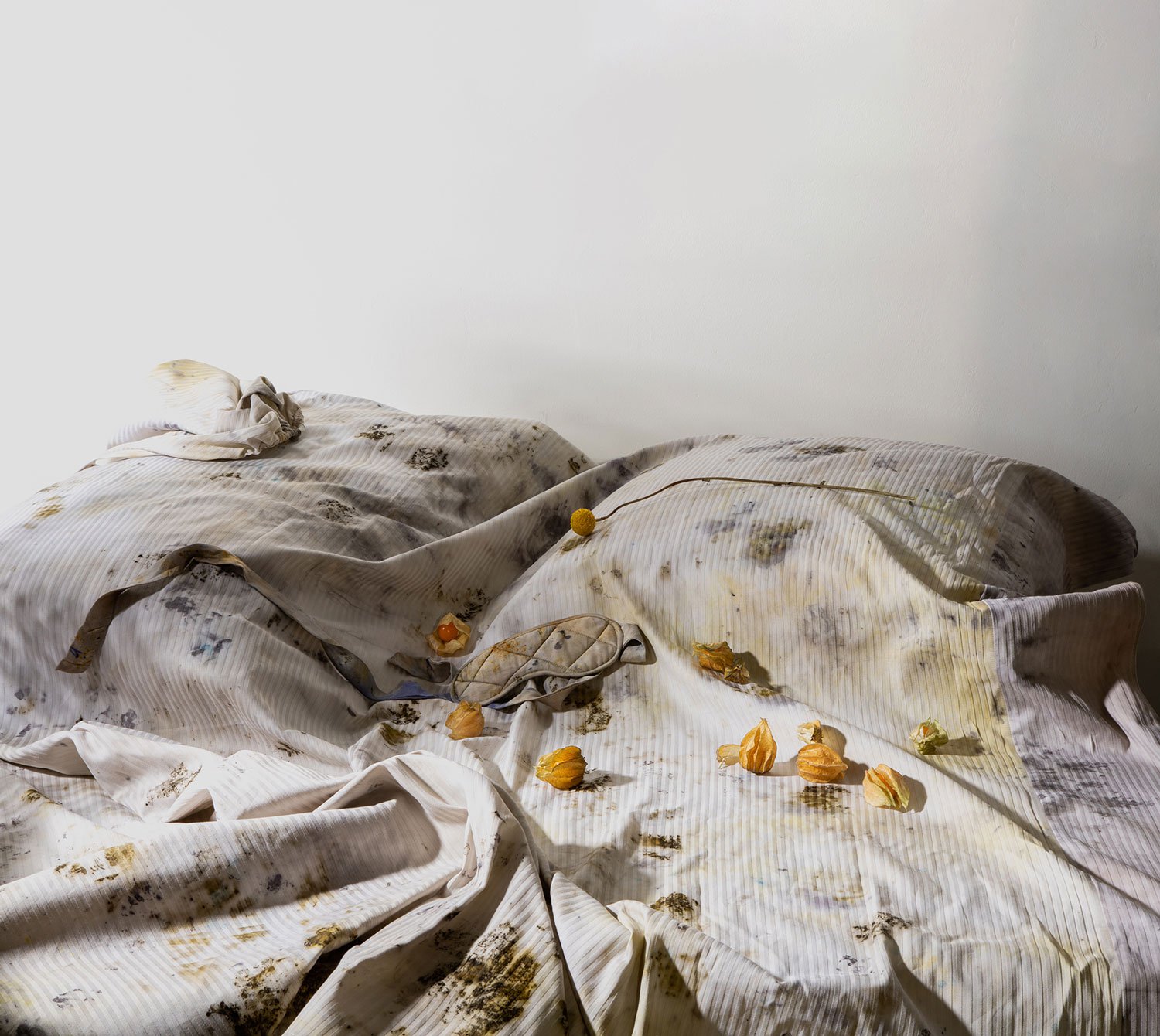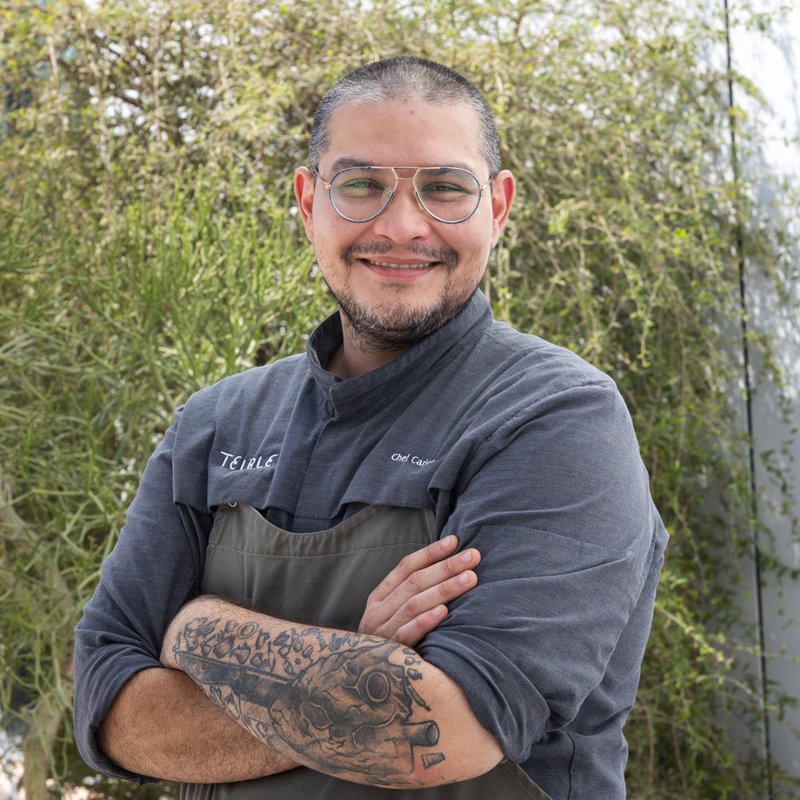Last year, the Jameel Arts Centre commissioned Nahla Tabbaa to do something with their open-air space in summer. That season, in this part of the world, is “a challenging time to be outdoors,” as Nahla puts it. Her response to that assignment brought together various strands of her curiosity – food, culture, nature – for an installation in the form of a garden. She chopped fruits and vegetables by hand on-site to then place on sun-drying panels, where they slowly stained underlying silks with vivid colours and patterns, like signatures of heat and time.
“I define myself as an artist,” says Nahla, “but through that practice I’ve also been working for a long time in the culinary world. And most recently, another hat I put on is alchemy.” The end product of that project is Shamsa, a kind of almanac comprising prose pieces, photographs and poems alongside recipes that also read as “fictional stories, or memory stamps”.
“The book really encompasses where I am today” she says. “So much went into it. I spent the entire summer, into winter, tending this garden. There were some areas where moulds would grow, and where birds would come to eat off it. Extracting the fruits of the labour was so difficult because I was climbing onto this roof, cutting for hours, placing and checking in on it. And because my work has always been focused on benevolence, sharing, being generous, it was important to me to translate that information into bits of recipes.”
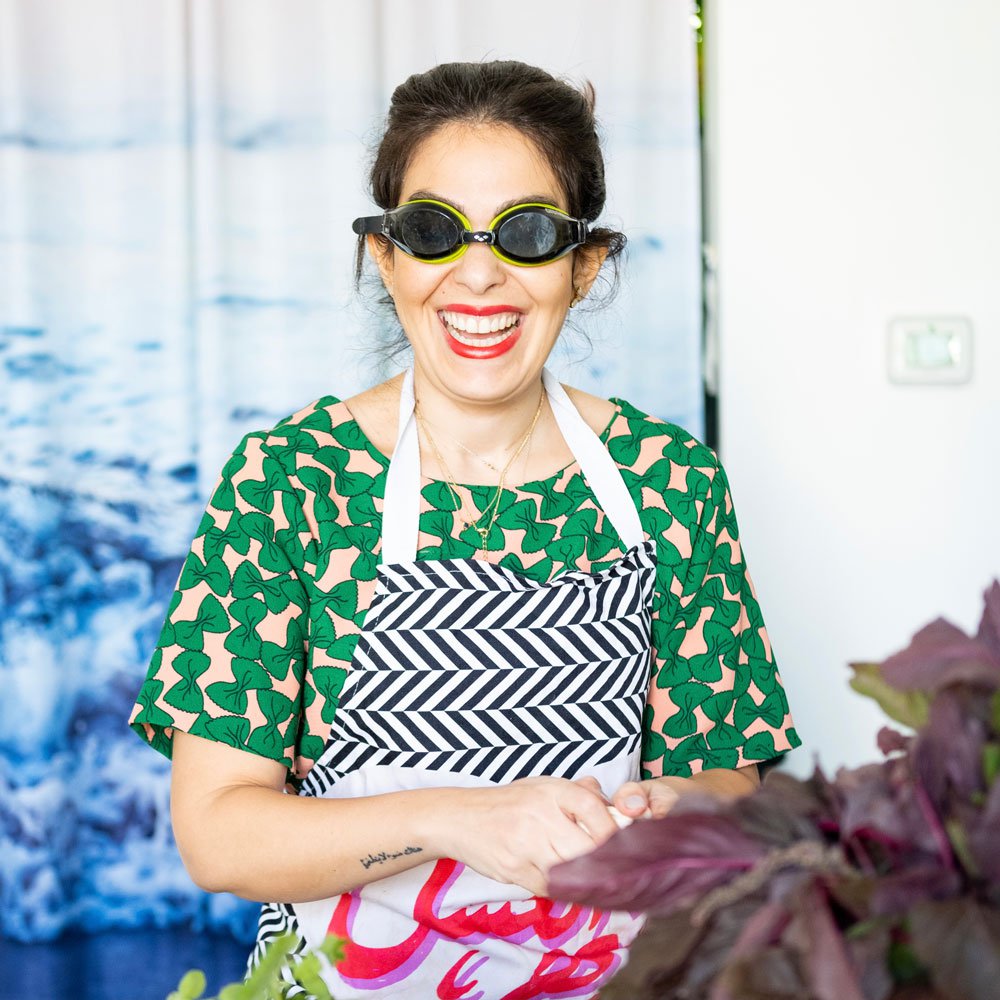
Nahla Tabbaa
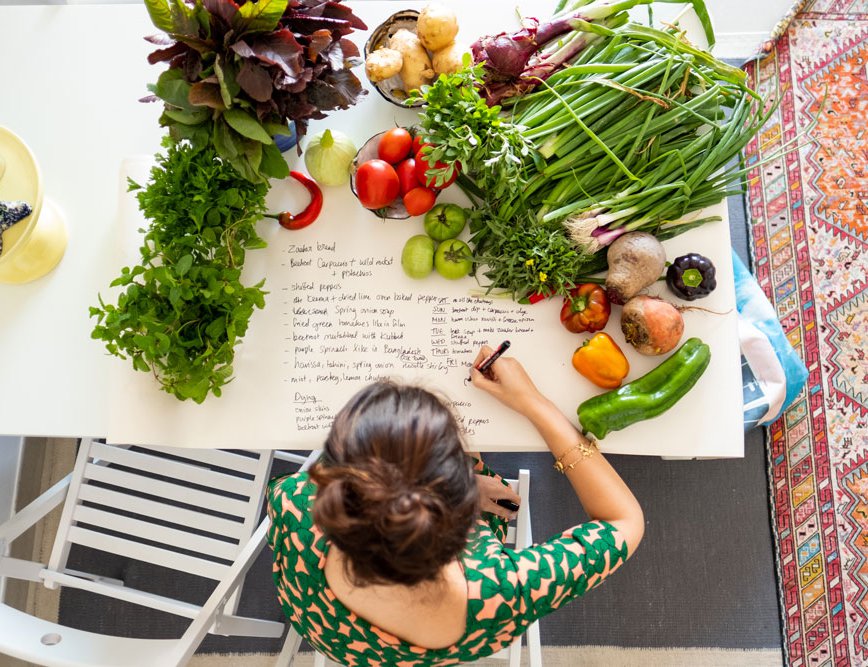
Nahla preparing for a supperclub
Half-Jordanian, half-Bangladeshi, Nahla has lived in Dubai for eight years, starting out here in community programming for various UAE art institutions, curating and customising client experiences. She worked as a guide with Frying Pan Adventures, running tasting tours to lesser-touristed corners of Dubai, deepening her own fascination for the “intersection between culture and food”, and developing a sense for how to “hone a story around certain food.”
A recipe, she says, “is not just a set of instructions. It has a lot to do with your state of mind on that day. How are you feeling? What is happening with the phase of the moon?” This holistic approach is now embedded in her own recipe writing.
“This is what I mean when I say alchemy. The body and soul, and how that translates into food.” Her culinary research has become progressively more infused with art, and especially dyeing, since she took a study break in London a few summers ago. Feeling “burned out” in Dubai, she retreated to the Prince’s Foundation School of Traditional Arts and took a short course on ‘sacred geometry’, which maps the movement of the planets according to the observations of Socrates and Plato.
“Why, I don’t know. I’m terrible at mathematics, and it burns a lot of calories to work by the millimetre. It’s very intense. But there was something incredible about our professor, Doctor Daniel Doherty. He would start with a piece of music that would kind of speak about how planets were invoked. And he taught us to make our own colours.”
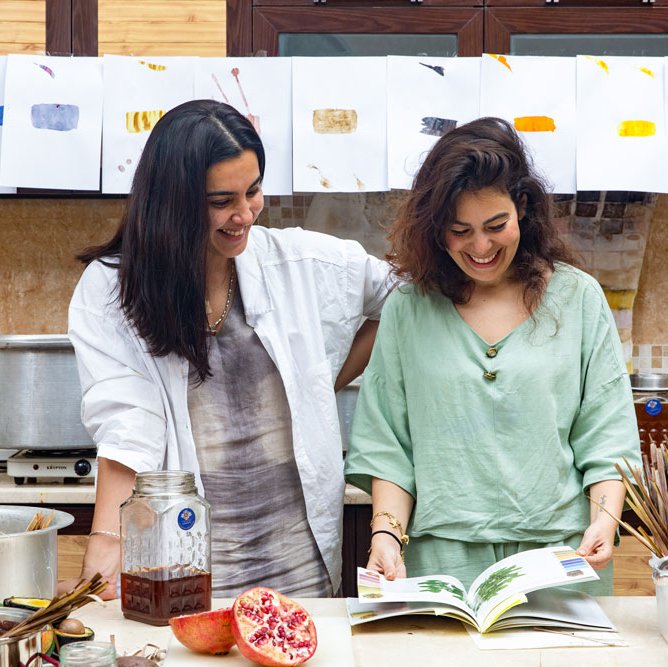
Mehru Khan and Nahla during their research residency at Irthi Crafts Council
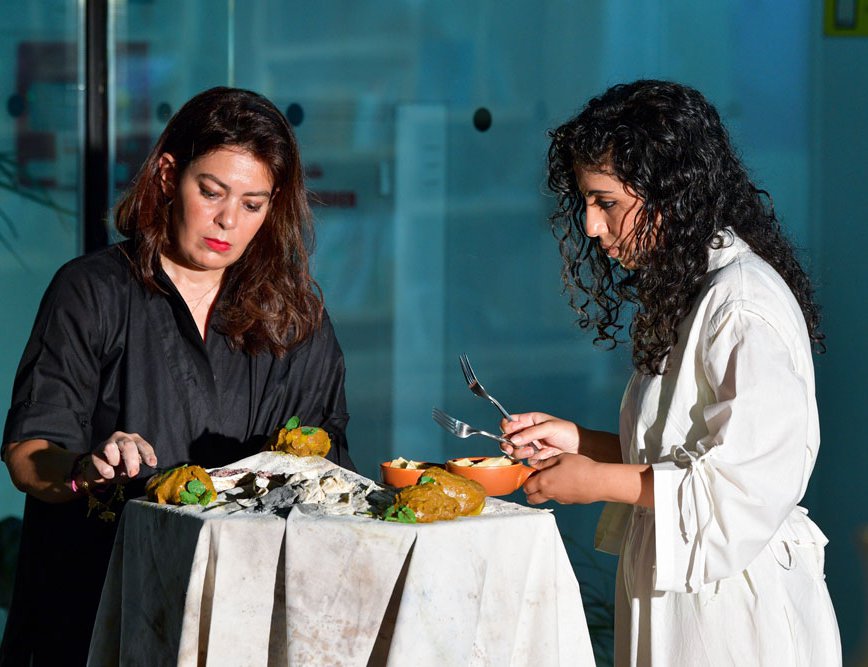
The Dinner in the Mountains – Nahla and artist Moza Al Matrooshi have been working together on a project commissioned by 421
Doherty would turn up with stones he had found by a stream on his commute, and the class would crush them, clean them, run them through a sieve to create a new palette. “His philosophy was that you can’t make something sacred without embodying what that means. The paper you use and the colour you make is all part of it. And it was really life changing for me to see this old-world practice still had relevance today.”
Back in Dubai, she became a forager in that spirit. “Slowly I started to extract colours from anything, like dust on an AC duct, squid ink from the fi sh market, bits of bark spores from a tree.” This avenue of interest has led her to other work, with other artisans, in other landscapes – the small-batch jam-makers Namlieh, for example, who forage for fruit across Jordan. Nahla had featured them in her curated programme Rewilding the Kitchen for Al Serkal online.
She has recently been accompanying friend and fellow artist Moza Al Matrooshi for a 421-commissioned project on agriculture in the UAE. Visiting botanists and honey foragers at mountain sites like Hatta and Jabalia Yanas, they’ve been discovering endangered native plants “and trying our best to create recipes and food experiences around them”.
This includes an organised dinner that will highlight the benefits of indigenous knowledge, and the dangers now threatening food security.
With another friend at fashion house Studio Meru, she has developed The Alchemy of Dyeing. It began as a research platform but grew to encompass online courses, research into colour mapping and a line of silk and cotton textiles with natural dyes derived from food scraps. They’re producing what they call “talismans that you can sleep on”. “We’re trying to work locally, and we just want to do something that teaches us to surrender, and also brings out its own magic.”
